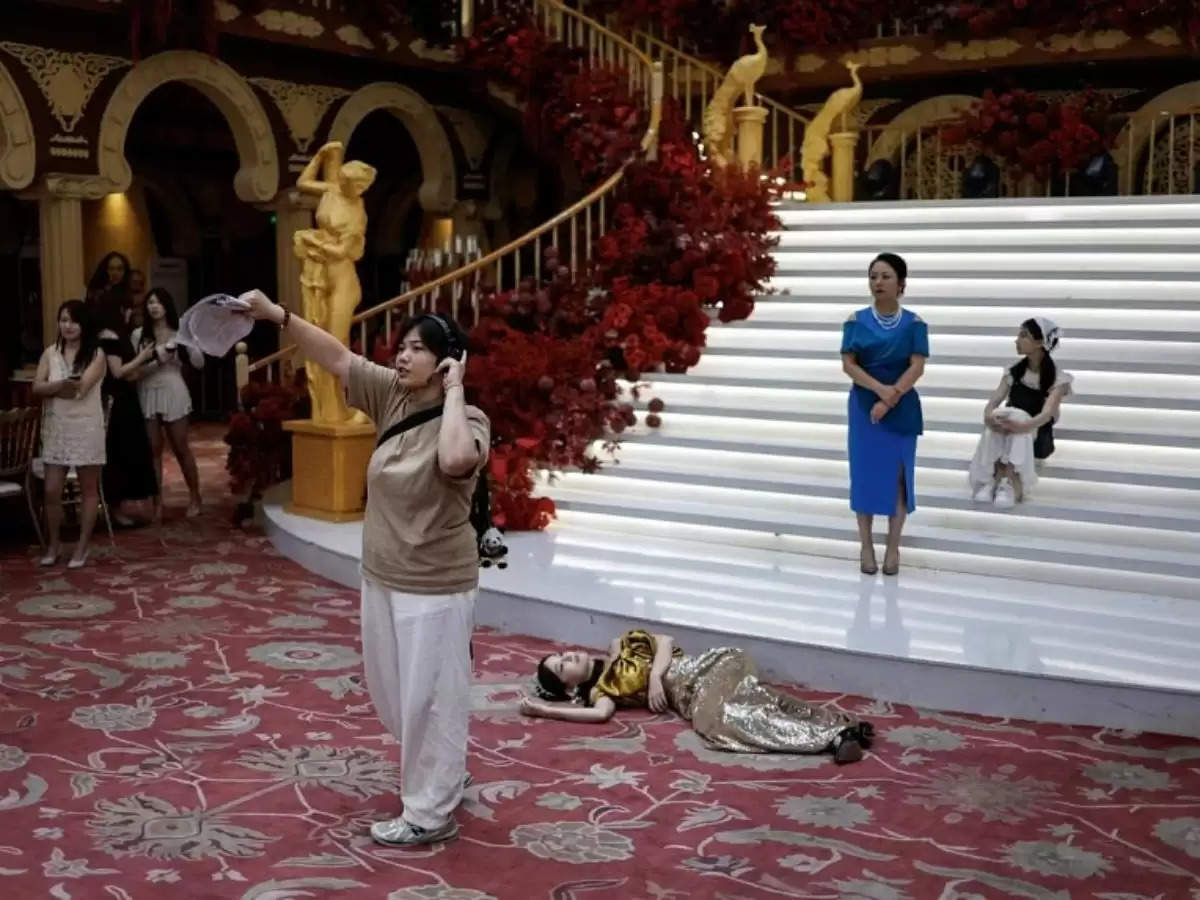Cheap and dirty? Micro dramas are shaking up the film industry in China, moving to Hollywood

Times of discover News: ZHENGZHOU, China, Sept 21 (Reuters) - In a movie setting resembling the medieval castle of a Chinese king, Zhu Jian is busy making a splash in the world's second-largest film industry.
The 69-year-old actor plays the head of a wealthy family who celebrates his birthday with a lavish banquet. But none of them knew the local maid was his biological granddaughter.
"Grandma Moon" is a subtle drama, consisting of vertically shot, minute-long episodes with constant plot twists, designed to keep millions of viewers glued to their cell phone screens - and pay them more for doing so.
"They don't go to the movies anymore," Zhu said of his audience, whom he described as middle-aged workers and retirees. "It feels good to pick up a mobile phone and watch whatever you want to watch."
China's $5 billion-a-year microdrama industry is growing rapidly, according to interviews conducted by Reuters with 10 people in the sector and four media scholars and analysts.
Some experts say short-format video has become a powerful competitor in China's film industry, which is second only to Hollywood in size and dominated by state-owned China Film Group. And the trend is already prevalent in the United States, a rare example that shows the appeal of Chinese cultural exports to the West.
According to analytics company AppFigures, the three leading China-backed micro-drama apps will be downloaded 30 million times on both Apple's App Store and Google Play in the first quarter of 2024, earning $71 million internationally.
"Audiences have an attention span of only a short period of time," said Ashley Dudarenok, founder of a marketing consultancy in Hong Kong. "So obviously, the more time you spend on short videos, the less time you have on TV or other long-format shows." The leader in this field is the Kuaishou app, which contributed 60% of the top 50 Chinese microdramas last year, according to media analysis consulting firm Andata. Kuaishou's vice president Chen Yiyi said at a media conference in January that the app had 68 titles that were viewed more than 300 million times last year, four of which had more than a billion views. He said about 94 million people watch more than 10 episodes a day on Kuaishou - more than the population of Germany. Reuters could not independently confirm the data. Initial episodes on such apps are often free, but to complete a microdrama such as "Grandma Moon", which has 64 clips, viewers can pay tens of yuan. Douyin, the Chinese version of TikTok owned by internet tech firm Bytedance, is also popular among microdrama fans. Along with other major Chinese social media apps such as Instagram Xiaohongshu and YouTube competitor Bilibili
In the United States, microdrama platform Reelshort, whose parent company is backed by Chinese tech giant Tencent, recently surpassed Netflix in terms of App Store downloads, according to Apple's U.S. market researcher Sensor Tower.
"China found this audience first," said Los Angeles-based Chinese producer Leila Cao. "Hollywood hasn't noticed it yet, but all the companies in China are already publishing content." Many popular microdramas, including "Granny Moon," have stories revolving around revenge or a Cinderella-like journey from poverty to riches.
The stories, which show how circumstances are set at birth and can only be changed by miracles, are popular with audiences at a time when upward mobility is low in China and youth unemployment is high.
The 26-year-old screenwriter, whose given name is Camille Rao, says micro-dramas often feature "lower class people one day and upper class people the next - you get rich. You humiliate people who have humiliated you before". Rao recently quit her low-paying job as a junior producer in the traditional film industry and entered the dynamic and less hierarchical world of micro-dramas. She now writes and adapts scripts to sell to Americans. "Social mobility is really very difficult now. Many people see it as a social reality," said Xu Ting, an associate professor of Chinese language and literature at Jiangnan University. She said this has led to a rise in interest in stories of billionaires and rich families: "Everyone wants power and money, so it's normal for such stories to be popular". In contrast, in the US market, werewolf and vampire fantasy stories are particularly popular, several creators told Reuters. The rise in microdramas in China has sparked Communist Party scrutiny.

